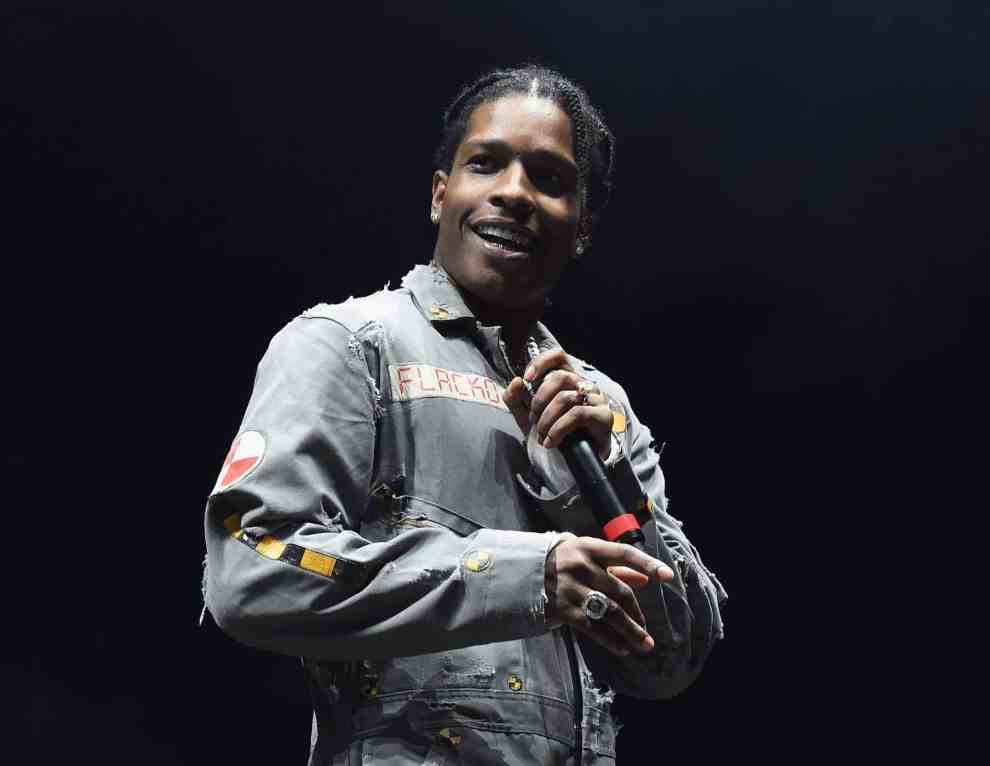(Photo by Kevin Winter/Getty Images)
The cryptic promotion for A$AP Rocky’s third studio album, Testing, made me nervous. Rocky has reached the apex of his experimental career. Often drawing inspiration from drug-induced creative sprees, Rocky seeks to explore nuanced sounds and visuals. He has taken his curiosity to the world of academia. During a recording session for Testing, Rocky invited a professor into to the studio to “spot” him and Skepta on a trip. I was nervous. I imagined that he was no longer focusing on lyrics, so much as creating a mood.
Aside from being one of New York’s most beloved artists, Rocky is well-respected in high fashion. A recipe, that at times, has compromised the quality of music. It is not uncommon for an artist to get complacent during the peak of their career, relying on their name to drive record sales. While others might ride the fumes of their last successful trip, Rocky continues to drop tabs and embrace his creativity to reach new frequency levels.
This past October, Rocky told GQ, “People are scared to test new sounds, so they go with what’s current ’cause it’s the easy thing to do. The top 100 songs sound a certain way. People cater more to that because it’s a bigger demographic behind that, or it’s a guaranteed demographic behind that. I prefer to experiment and have my crowd grow with me and to reach new crowds. I don’t just rap—I actually make music. That’s why it takes time.”
Although Rocky has used “testing” as a mantra in the leading months to this project, A$AP fans are well-accustomed to his experimentation with sound in the past. Rocky often distorts his voice, lowering it to a level of a deep synth to create a haunting tone. Additionally, samples from various A$AP Mob members are woven into the verses on both volumes of the Cozy Tapes.
On Testing, Rocky comforts longtime fans of the A$AP Mob by providing those familiar audible treats. “Black Tux, White Collar,” a track dedicated to denouncing fake people while thoughts of insecurity linger, welcomes timely “yuhh” or “what” from AWGE signed, Playboi Carti. However, these supporting vocals are not what Rocky was referring to for this experiment.
Rocky recruits artists outside of the mob to breath new energy into the record. He juxtaposes his crooning voice and effortless flow to the distinct sounds of London-born, Skepta and Memphis native, Blockboy JB. Through an acute attention to sound, Rocky creates tracks that are tailor-made for them.
Although Blockboy JB does not have a verse on “OG Beeper,” his presence is more than ad-libs used to fill space between bars. The track opens with Rocky’s recognizable distorted synths, but after a pause, makes way for Memphis’s Roland TR-808. The synths hollow out, ushering in a lo-fi sound. Blockboy’s Tennessee drawl is added during the verses, where the 808 bounce is the dominant production. However, on the chorus, where only Rocky’s voice is heard, the synths are dubbed back in.
“Praise the Lord (Da Shine)” is full of dancehall energy, which is a key element of grime music. Emerging from the depths of London’s underground scene in the early 2000s, grime music borrows its fast-paced beats-per-minute from Europe’s more popular electronic music. By way of Skepta, grime music has gained popularity in America’s hip-hop scene. The beat’s crisp production lends itself to Skepta’s clear pronunciation of each word. “Praise the Lord (Da Shine)” masterfully blends the energy of grime music with the coolness of Rocky’s flow.
On his debut album, Long Live A$AP (2013), Rocky attempted to blend genres: giving birth to the forgettable track, “Wild For The Night.” Produced by electronic DJ, Skrillex, the song resembles the screeching sound of a runaway train, decorated with florescent police lights fixed to the top of each car spinning a-synchronized. It is apparent at the time, that it was a forced very predicable collaboration.
What Rocky set out to do, experiment with new sound, is exactly what he did. He ingeniously devised a unique nuance within a familiar context.

